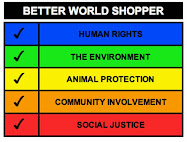link here
Wednesday, December 30, 2009
Tuesday, December 22, 2009
2.5% of all Haitian citizens are slaves
Report: 225,000 Haitian Children Work as Slaves
Tuesday , December 22, 2009
Poverty has forced at least 225,000 children in Haiti's cities into slavery as unpaid household servants, far more than previously thought, a report said Tuesday.
The Pan American Development Foundation's report also said some of those children — mostly young girls — suffer sexual, psychological and physical abuse while toiling in extreme hardship.
The report recommends Haiti's government and international donors focus efforts on educating the poor and expanding social services such as shelters for girls, who make up an estimated two-thirds of the child servant population.
Young servants are known as "restavek" — Haitian Creole for "stays with" — and their plight is both widely known and a source of great shame in the Caribbean nation that was founded by a slave revolt more than 200 years ago.
Researchers said the practice is so common that almost half of 257 children interviewed in the sprawling Port-au-Prince shantytown of Cite Soleil were household slaves.
Most are sent by parents who cannot afford to care for them to families just slightly better off. Researchers found 11 percent of families that have a restavek have sent their own children into domestic servitude elsewhere.
Despite growing attention to the problem, researchers said their sources were unaware of any prosecutions of cases involving trafficking children or using them as unpaid servants in this deeply poor nation of more than 9 million people.
Glenn Smucker, one of the report's authors and a cultural anthropologist known for extensive work on Haiti, said he believes the number of restavek children is increasing proportionally with the population of Port-au-Prince as more migrants flee rural poverty to live in the capital.
The researchers surveyed more than 1,400 random households in five Haitian urban areas in late 2007 and early 2008, with funding help from the U.S. Agency for International Development.
The most widely used previous number for restaveks came from a 2002 UNICEF survey, which estimated there were 172,000.
The new report used a broader counting system to include children related to household owners but still living in servitude, such as nieces or cousins, and as well as "boarders" living temporarily with another family but are still forced to provide labor.
"Most people working with restavek children ... think that these numbers, both ours and UNICEF's, are actually underestimating the problem," said Herve Razafimbahini, the Pan American Development Foundation's program director in Haiti.
He called for Haitian officials to conduct a national survey to analyze the full scope of the problem, including in rural areas.
Officials with the Ministry of Social Affairs could not be reached for comment Tuesday.
Tuesday, December 8, 2009
Captive
-by Stephanie-
A squelched cry in the encroaching darkness.
A whimper and a malevolent whisper,
"Close your eyes and open no more.
No one is coming for you, helpless."
There was a fire burning in those
Endless pools of cedar.
The fire has been blotted out,
And there is no life left in that single rose.
The cries of millions rise.
The nations they long to aprise.
Hear their broken melodic cries.
Quash the evil lies.
You can extricate
All the demons we hate
To save our little ones from the fate
And these brothels eradicate.
Lying on a frigid cement floor
With only her rags for company.
Sobbing into the unfeeling night
As another knock sounds from the door.
Another man. Another night.
Shut out all feeling. Close off the heart.
No more crying. No more tears
That reach no ones ears.
Hold close her limbs as cold as ice.
Release all memory of what should be right.
She's only seven and she's
Given up the fight.
These bars are strong. These lights
Are harsh. Staring blindly ahead
The transparent wall reveals
The farce of business men.
Some with families, some with flocks
Caressing her dark locks.
When day comes they are welcomed home
And here she sits all alone.
This is present. This is here.
The faceless evil that we fear.
It's in your city, Even those you know.
Millions of souls they have scraped hollow.
And here she is, beaten and broken.
Down in a cell where the day cannot touch.
You know she's there. You have no excuse,
No alibi for her abuse.
What will you do know that you see?
Will you walk on as before and refuse
The plea to speak, to shout to cry out?
Will you turn and flee?
She was seven, yet now in heaven. By her death
She escaped her gates. But millions more
Still share her fate.
To live in death.
Used for the sake of lust and carnality
In death she is set free
But how long did she live in captivity?
We can save these cherished children of God.
Think of your daughters. Think of your sons
Living in the brothels and slums.
Are you upset? Are you afraid yet?
To stand before the throne on judgment day
And account for all that you delayed?
I fear to break the heart of the God I love
Because I would not stand up for His precious ones.
A squelched cry in the encroaching darkness.
A whimper and a malevolent whisper,
"Close your eyes and open no more.
No one is coming for you, helpless."
There was a fire burning in those
Endless pools of cedar.
The fire has been blotted out,
And there is no life left in that single rose.
The cries of millions rise.
The nations they long to aprise.
Hear their broken melodic cries.
Quash the evil lies.
You can extricate
All the demons we hate
To save our little ones from the fate
And these brothels eradicate.
Lying on a frigid cement floor
With only her rags for company.
Sobbing into the unfeeling night
As another knock sounds from the door.
Another man. Another night.
Shut out all feeling. Close off the heart.
No more crying. No more tears
That reach no ones ears.
Hold close her limbs as cold as ice.
Release all memory of what should be right.
She's only seven and she's
Given up the fight.
These bars are strong. These lights
Are harsh. Staring blindly ahead
The transparent wall reveals
The farce of business men.
Some with families, some with flocks
Caressing her dark locks.
When day comes they are welcomed home
And here she sits all alone.
This is present. This is here.
The faceless evil that we fear.
It's in your city, Even those you know.
Millions of souls they have scraped hollow.
And here she is, beaten and broken.
Down in a cell where the day cannot touch.
You know she's there. You have no excuse,
No alibi for her abuse.
What will you do know that you see?
Will you walk on as before and refuse
The plea to speak, to shout to cry out?
Will you turn and flee?
She was seven, yet now in heaven. By her death
She escaped her gates. But millions more
Still share her fate.
To live in death.
Used for the sake of lust and carnality
In death she is set free
But how long did she live in captivity?
We can save these cherished children of God.
Think of your daughters. Think of your sons
Living in the brothels and slums.
Are you upset? Are you afraid yet?
To stand before the throne on judgment day
And account for all that you delayed?
I fear to break the heart of the God I love
Because I would not stand up for His precious ones.
Monday, December 7, 2009
TED India on child sex-slavery and rehabilitation
If you do nothing else today, WATCH THIS
Sunitha Krishnan has dedicated her life to rescuing women and children from sex slavery, a multimilion-dollar global market. In this courageous talk, she tells three powerful stories, as well as her own, and calls for a more humane approach to helping these young victims rebuild their lives.
Subscribe to:
Posts (Atom)






